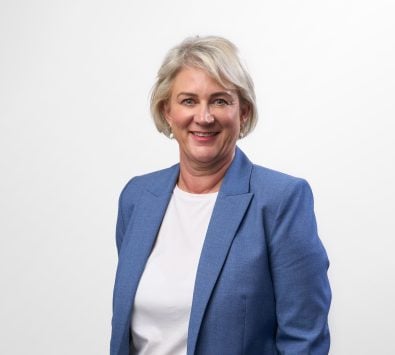New Zealand’s Evolving Big Law Scene
John Bowie, LawFuel publisher
In what can only be described as déjà vu with a South Island twist, Anderson Lloyd has executed another masterful lateral recruitment coup that signals are more dynamic New Zealand legal market among large law firms.

The firm’s acquisition of three Chapman Tripp partners—Jo Appleyard, (pictured) a major resource management lawyer), Ben Williams, and Ingrid Taylor, plus five other lawyers —to their Christchurch office represents more than mere musical chairs among the legal elite. It’s a calculated power play that underscores the evolving dynamics of New Zealand’s legal marketplace.
The move echoes the firm’s audacious 2014 recruitment blitz when they successfully poached three Russell McVeagh partners—Geoff Busch, Chris Bargery, and David Holden—in what was described as “a major downsizing for the firm and an equally significant coup for the burgeoning Auckland office of Anderson Lloyd”.
That earlier raid not only established Anderson Lloyd’s Auckland presence but demonstrated their appetite for strategic growth through targeted lateral hires.
The Numbers Tell the Story
The Christchurch acquisitions bring Anderson Lloyd’s total partner complement to 31, with 12 now in Christchurch and 22 in total in the South Island—a remarkable expansion for a firm that just six years ago operated with only four partners in Christchurch.
Perhaps more significantly, the firm has achieved something that remains elusive for many of their larger competitors: over half of Anderson Lloyd’s equity partners are now female, marking what they describe as “gender parity at the equity partner level”.
The recruits bring formidable expertise in resource management, infrastructure, and property law—practice areas that are absolutely critical to the South Island’s development growth, particularly with the ongoing Christchurch rebuild and Queenstown’s relentless expansion.
This isn’t coincidental positioning but shows strategic foresight in a market where transactional work constitutes nearly half of the average New Zealand firm’s worked hours.
Chapman Tripp’s Stoic Response
Chapman Tripp, one of New Zealand’s venerable “big three” firms alongside Russell McVeagh and Bell Gully and arguably New Zealand’s richest and most powerful law firm, has maintained a diplomatic facade in response to the departures.

Managing partner Pip England (pictured) acknowledged the partners’ contributions while noting that “changing within professional teams is a natural part of a professional business’s growth”.
With only three remaining partners in Christchurch, Chapman Tripp’s South Island footprint has been significantly diminished, though England insists the firm remains committed to its practice areas in litigation, resource management, property, and health and safety.
A Market in Transition
The lateral movement occurs against the backdrop of New Zealand’s legal market showing signs of recovery after years of volatility. Thomson Reuters Institute’s 2025 report indicates that after two years of declining profits in 2022 and 2023, firms experienced “a welcome return to stability” in 2024, with moderate cost growth and expanding top lines.
The timing couldn’t be more propitious for Anderson Lloyd. As the TR report notes, “If current trends continue, 2025 may see an even stronger return to profit growth and an increase in profits per equity partner (PPEP) more in line with pre-downturn levels”.

Anderson Lloyd Chair Geoff Busch (pictured) —himself a Russell McVeagh emigre from that memorable 2014 exodus—described the recruitment as part of the firm’s “strategic growth strategy” that “signals our ambition to continue growing with purpose in support of our clients and businesses”.
The Anderson Lloyd Phenomenon
What makes Anderson Lloyd’s expansion particularly intriguing is how it challenges the traditional BigLaw hierarchy. While firms like Chapman Tripp have maintained their status through sheer scale—with around 52 partners and roughly 240 legal staff—Anderson Lloyd has pursued a more focused approach, building expertise in high-demand practice areas while maintaining what industry observers describe as a more collegial culture.
The firm’s growth trajectory has been nothing short of remarkable. Their Auckland office, established in 2014, has been described as “a remarkable success,” doubling in size in just six months during 2019 and continuing to expand with each strategic hire. The Christchurch office, now operating from new premises at The Regent in Cathedral Square with around 65 staff, represents a similar commitment to strategic positioning.
Beyond the Headlines
This lateral movement reflects broader trends reshaping New Zealand’s legal scene. The increasing prevalence of in-house legal departments, heightened resistance to traditional hourly billing, and the integration of legal technology are forcing all firms to reconsider their strategic positioning.
Anderson Lloyd’s approach—building specialist capabilities in high-growth practice areas while maintaining operational agility—suggests a blueprint for success in this evolving environment.
The recruitment also highlights the critical importance of resource management expertise in New Zealand’s legal market. With regulatory changes including revised Resource Management Act reforms and other legislative updates creating new compliance landscapes, firms with deep expertise in these areas are positioned to capitalise on increased demand.
As Anderson Lloyd continues its methodical expansion, the question isn’t whether they’ll continue growing it’s how their competitors will respond to what appears to be a sustained campaign to reshape New Zealand’s legal hierarchy, one strategic hire at a time.